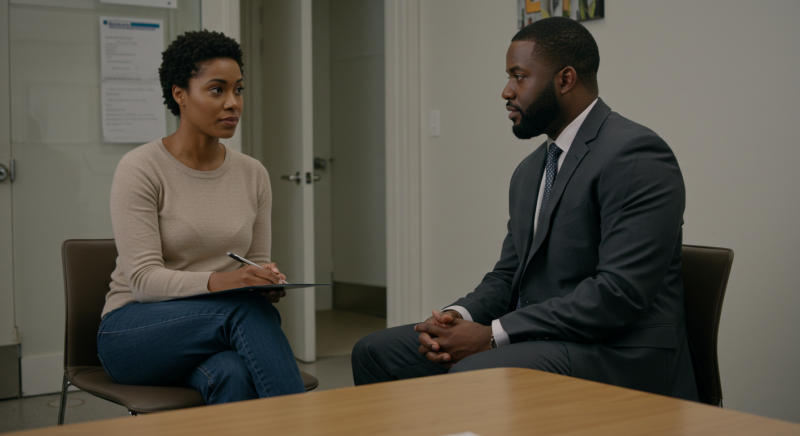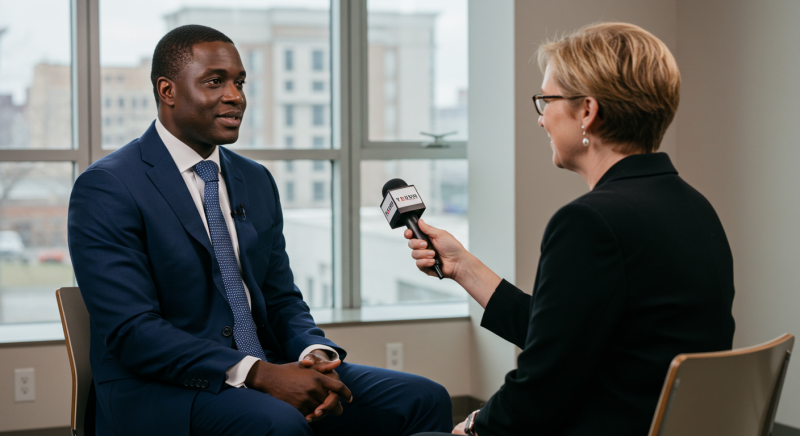Did you know that in Nigeria, 75% of people who apply for a job fails at the interview stage, and these mistakes are avoidable?
 Whether you are a fresh graduate or an experienced professional, performing well in a job interview is a skill that can make or break your career. This article will cover the most common interview mistakes, highlight the most popular interview questions, and how interviewers think. But fear not — by the end, you’ll have all the knowledge you need to get that dream job!
Whether you are a fresh graduate or an experienced professional, performing well in a job interview is a skill that can make or break your career. This article will cover the most common interview mistakes, highlight the most popular interview questions, and how interviewers think. But fear not — by the end, you’ll have all the knowledge you need to get that dream job!
Key Takeaways
- In interviews do not try to give general or practiced answers.
- Practice for classic questions such as “Tell me about yourself” and “Why should we hire you?”
- Knowing how interviewers think will help you frame your answers better.
1. Nigerians Commonly Mistakes When Responding To Interview Questions
In Nigeria, a lot of job seekers subconsciously hinder their chances with these common errors:
Answering Too Perfectly: You should prepare, but if you sound robotic or memorized, you may sound forced. If they wanted to hear scripted monologues they would consult a garden variety oracle, they want real answers — spontaneous, on-message and off-script.
Being Too Vague: “I’m a hard worker” in fact is not an impact answer without specific examples. Example you can use the STAR method, situation, task, action, result ( STAR) to present evidence of your skills.
Over or Under Communicating: Talking in long sentences can make you glossy-eyed; on the flip side, giving one-word answers makes it apparent you don’t care. Be concise while also providing enough detail.
Not Being Familiar with the Company: Not knowing the mission, values and recent success of the company can make you come off as unprepared.
Ignoring Body Language: Bad eye contact, slouching, or fidgeting could say the exact opposite. Practice powerful body language.

2. Top Five Typical Job Interview Questions with How to Respond To Them
Job interviews in Nigeria tend to follow the same pattern, with specific questions surfacing across industries. Understanding how to respond to these questions can distinguish you from other candidates. In this section, we have explained the 5 most common interview questions, along with extensive tips and examples to help you formulate a successful response to each.
1. “Tell Me About Yourself”
This is usually the first question you will be asked in an interview, and this will determine the flow of the rest of the interview.
What They Want: A brief overview of your professional background, your skills, and why you say you are a good fit for the role.
How to Answer:
Always begin with your current or most recent job.
Technical skills relevant to the job.
Wrap up with something about why you’re excited about the opportunity.
Example:
I’m a qualified accountant with more than 5 years of experience in financial and internal auditing. For example, in my last job at XYZ Company, I was able to reduce the budgeting process and save 20% savings on operational cost. “I have a passion for using data to inform decision-making, and I’m excited about the possibility of providing valuable contributions to your team.”
2. “Why Should We Hire You?”
This question gives you an opportunity to sell yourself and demonstrate why you’re the top pick for the role.
What They’re Looking For: Proof that you have the skills, experience and attitude to succeed in the role.
How to Answer:
Align your skills and experiences directly with what the job is looking for.
Emphasize what makes you special compared to other applicants.
Be excited about the role and the company.
Example:
You should hire me, because I bring a unique combination of technical expertise and leadership experience. As a previous achievement, I motivated a team of 10 in finishing the major project ahead of time, leading to the 15 percent increase in client satisfaction. I’m also very flexible and perform well under pressure, so I think I will be a great fit for your company’s fast-paced culture.”
3. “What Are Your Strengths and Weaknesses?”
A question which gauges how conscious you are of your own self and how truthful you are to yourself.
What They Want: A balanced picture of what you do well and what you need to work on.
How to Answer:
For strengths, ensure it is related to the job (i.e. teamwork, problem-solving, technical skill, etc.).
For weaknesses, pick one small imperfection and describe how you are trying to make it better.
Example:
“I am good at working with different types of people and different teams.” By keeping everyone on the same page, I successfully managed cross-functional projects. Weaknesses: “I used to have trouble with time management, but I’ve begun using productivity software, like Trello, to keep everything organized, and it has really helped.”
4. “Where Do You See Yourself in 5 Years?”
Employers want to know whether you’re ambitious and whether your goals align with their company’s vision.
What They Want: An overview of your career goals and dedication to the company.
How to Answer:
Show ambition but keep it realistic.
Align your goals with company growth opportunities.
Example:
In another five years, I hope to continue to grow within this company, adding more leadership experience and pursuing further growth opportunities that the company can provide.. I want to especially develop my skills in [specific area] and believe this role would allow me to do that.”
5. “Why Did You Leave Your Previous Position?”
This question determines your motivation and work ethics that interviewers want to know.
What They Want: To know why you left and if you are a dependable candidate.
How to Answer:
Keep it positive, do not badmouth your former employer.
Emphasize opportunities to grow or align with your career goals.
Example:
“I left my previous job to seek out a position that better aligns with my long-term career goals. “That job taught me a lot, but I’m ready for the next step, to work for a company like yours and to continue to develop skills in [specific area].”
Bonus Tip: Practice Makes Perfect!
Practice your answers with a friend or in front of a mirror.
If you record yourself talking you can hear how to improve the tone of your voice and body language.
Read as much info on the company and role as possible to better customize your answers.
With these rehearsed answers to common questions, you would be all set to dazzle any interviewer and get your dream job.

3. How Interviewers Think: What They’re Really Asking
Interviewers aren’t firing off random questions — they’re judging your fit for the job and company’s culture. Here’s what they actually want:
Cultural Fit: Questions such as “What do you know about our company? Evaluate your interest and alignment with their values.
Problem-Solving Skills: Behavioral questions (like, “Describe a time you handled a difficult situation”) evaluate how you encountered challenges.
Emotional Intelligence: Your interpersonal skills will show through how you respond to questions about teamwork or conflict.
Long-Term Potential: Career questions that explore your future plans help them assess whether you’ll stick around and expand with the organization.
Tip: Customize your answers based on the job description and company values.
Conclusion
Job interviews don’t need to be scary. If you avoid common pitfalls, prepare for important questions, and let the interviewer talk, your success rate will improve. All interview experience is positive, so you will go on to improve, have faith in the process.
FAQs
1. What do we wear to a job interview in Nigeria?
It is the best to wear professional or formal clothes. For an office job, you might want to go with a suit or traditional wear like a well-tailored agbada or corporate blouse and skirt.
2. What do I do if I can’t answer a question?
Keep cool, say that you don’t know, and indicate that you want to learn. For instance, “I’m not familiar with that, but I can definitely research it.”
3. What is the ideal length for my answers?
Keep to 1-2 minutes at most per answer. Short and save the space for showing your way on skills and experiences.
4. Do I need to negotiate salary at the interview?
Hold off until you’ve been offered the job. Before selling yourself, prove your worth.
With these tips, you will master your next job interview successfully! Good luck!
External Resources:
Interview Tips For Nigerian Job-seekers
Was this article useful? Pass it on to a friend preparing for an interview!
